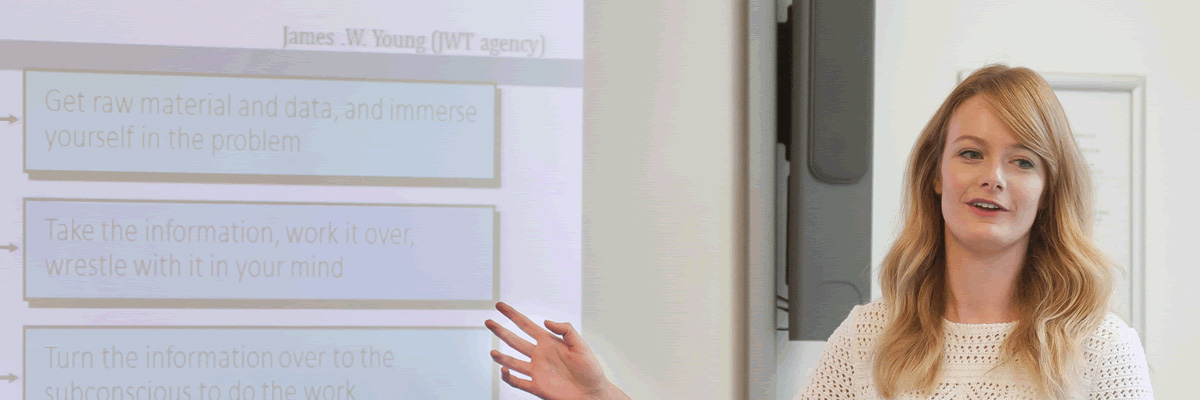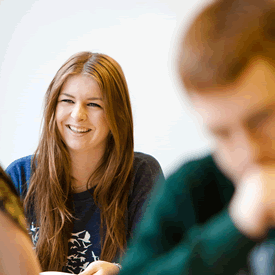Research in Marketing
In the Department of Marketing, we have a vibrant research culture with two specialisms: Market Dynamics and Consumer Research.
In the Department of Marketing, we have a vibrant research culture with two specialisms: Market Dynamics and Consumer Research.


At Lancaster, we have one of the largest groups of marketing academics in the UK. We disseminate our research through top international journals, and through international, interdisciplinary conference presentations.
Many of our researchers work closely with marketing practitioners to ensure our research is engaging and impactful for commercial and public-sector organisations.
We have two specialisms: Market Dynamics and Consumer Research.
Our Market Dynamics Research Group seeks to identify, understand and help solve complex organisational, national and global level challenges through the adoption of strategic market-driven theoretical lenses. Our research ethos is centred on a highly connected and engaged approach, working in collaboration with national and international private industry and public sector on the role of Artificial Intelligence, social/sustainable innovation, big data analytics, the future of vehicular mobility, and technology-led circular solutions.
Our research helps organisations create a more sustainable future
Our research lies at the intersection of technological transformation and strategic design
We help to shape what markets are, what they can do, and what they can become
We investigate and utilise design-led approaches to shape organisational eco-systems and drive strategic value
How can firms grow core business, and create new value systems to grow sustainable revenue streams? Taking a design-led thinking approach, our organisational marketing researchers lead eco-system development projects to create cross-sector offerings to solve this question.
We see design-led thinking as rapidly becoming a source of core competitive advantage, situated at the intersection of human, technological and strategic change to create new service experiences in both organisational and consumer markets.
We take a multi-disciplinary approach to explore how markets take the form they have, how they change, and how we might change them.
Generally, we consider markets as collectively negotiated and performed rather than naturally occurring phenomena. So, we are particularly interested in the ongoing ordering of markets, the network of actors involved in shaping commercial exchanges.
Our deeply contextual approach allows us to work well alongside market practitioners and generate insights relevant to them.
Innovation lies at the heart of successful organisations, yet what happens when innovation in product or service design and delivery comes at an unintended environmental or social cost?
Solving this conundrum through exploring sustainable innovation is a core theme across the department. Researcher work closely with organisational partners, investigating how to integrate positive long-term environmental and social benefit via rethinking how firms create value in their processes, supply chain logistics, and the products and services they offer.
We seek to extend current thinking on how organisations can design and implement sustainable long-term strategies centred on value creation both internally and externally with business customers and end consumers.
With significant global digital technological acceleration, we are increasingly focusing attention on the role of digital data in enabling organisational strategic thinking, driven by real-time consumer insights, leading to enhanced forms of market understanding.
Working with a range of external organisations, current projects include IoT digital transformation in manufacturing, technological innovation in circular solutions, and strategic digital capability building in healthcare provision.
Find out more about Dr Josiane Fernandes’ trips to Rio’s favelas and see how they inspired her research.
We have a tradition of fostering expertise across consumers and consumption. This resulted in the launch of the Centre for Consumption Insights. Although our interests transcend many theoretical perspectives, they share a commitment to engaged scholarship and impact. This results in contributions to solving issues of social justice, vulnerable consumers, sustainable innovation, disability, health inequalities, and wellbeing. Our approach is embedded within the transformative consumer research ethos, utilising contemporary consumer culture theory, sociology, psychology and consumer marketing to bridge the gap between academic knowledge and application to create positive societal change.
We critically examine the changing lives of digital consumers amidst rapid accelerated technological change
Our centre for excellence in consumer thinking is at the forefront of multidisciplinary research
We help shape a better, fairer society through collaborative research.
Our research identifies and helps to reduce inequality to create a better future for all.
Consumption Insights draws together research excellence in all aspects of consumption behaviour to generate cutting-edge enquiry, ranging from social psychology, the sociology of consumption and markets, through to experimental work in consumer psychology.
Current research projects seek to investigate and attempt to create sustainable, long-term positive change across a range of societal challenges relating to health and consumer wellbeing.
The CCI works with external stakeholders on concerns including gambling, alcohol, food and food poverty, personal credit, disability, online digital consumption, sustainable consumption, consumer wellbeing, and youth consumption.
The centre’s multidisciplinary perspective draws expertise from marketing, sociology, psychology and health research, with members heavily involved in key international research networks, including the Consumer Culture Theory network, Transformative Consumer Research, and the Association of Consumer Research.
A successful interdisciplinary ethos has been a driving force behind the design, development and implementation of significantly impactful research projects across the department.
Working closely with Lancaster’s Centre for Health Inequalities Research, and the Centre for Disability Research, plus several external stakeholder groups, Marketing Department members have successfully led joint initiatives to investigate the social determinants of inequalities in health, whilst developing research evidence to reduce inequalities, and positively increase education across diverse social groups.
Technological digital advancement is widely viewed as an unstoppable force. It represents an unrivalled paradigm shift, encompassing everything from Artificial Intelligence to the metaverse.
Within this transformative shift, our research seeks to critically examine and understand the modern-day digital consumer, where much of their lived consumption experience sits at the blurred intersection of human and algorithmic realities.
With research projects focused on digital influencers, AI, digital fandom, and technoculture, we attempt to understand and unpack the societal, social and cultural effects of the digital world on consumption practices.
Don’t be a Bad Influencer. Dr Hayley Cocker delves into the world of social media influencers
Take a look at some of the artwork from the Marketplace and I, and allow Dr Leighanne Higgins to guide you through her work.
The Marketplace and I
A long-standing component of our research at Lancaster adheres to the view that research in marketing can act as a positive force of societal change.
Social justice, or the notion of fairness across society in terms of equal access to wealth, opportunity and social privileges, is at the core of ongoing projects on the alleviation of food poverty using conceptions of innovation, as well as market studies, and their effect on food systems.
Further work in the department follows a similar ethical vein, focusing on the investigation and alleviation of workplace gender inequality.